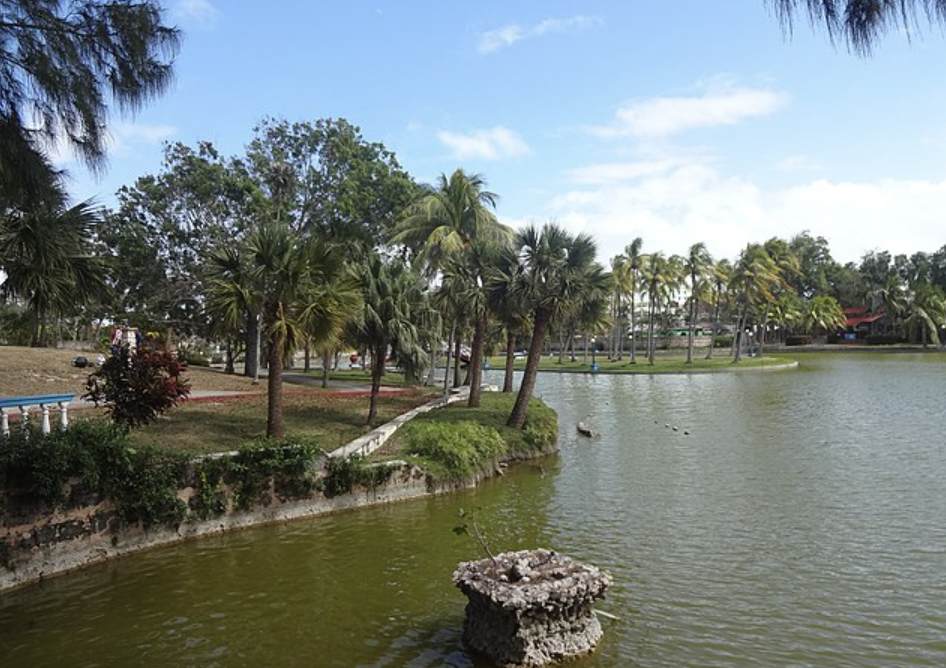As Cuba’s economy continues to lag, the small island’s government is hoping a deal hammered out with Russian leaders will boost its economy and better relations with a global power. Sugar production has long led Cuba’s manufacturing but has recently collapsed to extreme lows. The country is hoping to rebuild its sugar industry as well as other industries, such as construction, oil, rum, and tourism, with the help of Russia.
Sharing Resources
In mid-May, Cuban and Russian leaders released a new plan meant to aid the faltering economies of each country. Cuba is promising Russia preferential treatment in accessing Cuban property, markets, and labor, rarely given out to foreign actors within the borders of the island. In a move almost unheard of for Cuba, the government promised Russia an exemption from its import taxes. It also has allowed Russian companies to use Cuban land for at least 30 years, which comes as Cuban citizens only have recently been given limited property rights. These companies will have access to more land than Cuban private citizens and companies have had since 1959. They will have more favorable conditions of ownership with lower costs and fewer regulations. Cuba and Russia are looking into ways to expedite shipping between the nations, which is currently difficult. They aim to mirror maritime structures that Russian officials say existed between Cuba and the Soviet Union prior to the latter’s collapse.
Alongside these trade agreements, Russia is positioning Cuba as a resort nation for Russians looking to travel to the tropics. They are aiming to develop and advertise the poverty-ridden areas around Havana as a playground for tourists similar to the tourist villa of Varadero, inaccessible to most Cubans.

Cuba and Russia are moving to create a joint rum company, which would boost Cuba’s flagging rum exports. Russia is also providing financial resources and expertise to build a steel mill to aid lagging construction across the island.
Additionally, Russia is supplying more wheat and oil to Cuba, which has struggled to provide food and consistent energy supplies to even urban areas, especially to those lowest in income. As the island has been rocked by storms, citizens are repeatedly left without power for days. Cuba recently has tightened its rationing system, including eliminating chicken allowances. Rationing has driven widespread discontent across the island and contributed to record emigration rates. Cuban officials hope these imports, and steel that may feed construction, may keep more people on the island.
While these moves seem to put Cuba on the path to greater self-reliance, they may put the small island nation under the grip of Russia as it aims to build a rival axis of power to the United States. The long-term infusion of resources into the island gives Russia the potential to withdraw these same resources. If Cuba continues to grow more dependent on Russia, it will simultaneously have to grow more loyal to the superpower to maintain access to its goods. At most risk of economic pain are the Cubans who would be employed by these projects. Their employment comes at the whims of Russian leaders, whose choice of investment could change as global sanctions do. If Russia, for any reason, chooses to pull its companies, tourists, or imports from the nation, the jobs from the “Rusmarket” will collapse. This Rusmarket is a market for various Russian goods planned for Cuba specifically. Governments from each nation hope that the implementation of the Rusmarket will spur development in each nation and fill the gap left by Cuba’s ailing rationing system. These projects seem to promise the enrichment of Cuban government officials, as most of these projects will be state-owned or run on the Cuban side, such as imports of wheat to Alimport from Russia’s Prodintorg. These officials, however, are not at risk for poverty if these projects go south. Average Cubans, who would provide the labor for these officials or rely on the goods from this deal, seem to be at the most individual risk.
This infusion of goods ties a small but geopolitically important nation to Russia, as its influence in other nations recedes. As shipment and production between Cuba and Russia builds, public and private Russian companies can reach other parts of Latin America. As more nations are shifting from US influence following the wave of left-leaning leadership in the region, Russia is in a better place to fill the void of influence and trade left by the US. As Cuban state-owned companies flourish, the regime on the island can also influence nations in the region. It can then send the promised rum and sugar across the region, and gain similar leverage from other countries as it joins the Russian hierarchy of power.
Analysts admit that Cuba is in the worst financial position it has been in since the collapse of the Soviet Union in 1991, due to lack of trade and decades-long government mismanagement. Vulnerable and isolated, it is dependent on Russia, a major supplier of steel, oil, wheat, and backing from a global power. However, it is not Cuban officials risking their money or labor on this relationship. Instead, it is average Cubans who are vulnerable to the Russian influence on the Cuban economy.
Military Collaboration
Beyond economic ties, Cuba and Russia have been moving closer militarily. Cuba has made clear that they reject Ukraine’s joining of NATO, and Cuban fighters have even appeared alongside Russian forces in the invasion of Ukraine, although official sources say this collaboration involved private citizens volunteering for the Russian armed forces, not the Cuban armed forces. The Cuban military, however, agreed to train forces in Russian ally Belarus, apparently representing a formal military tie between the two nations.
Further, Russia’s presence in Cuba, while apparently without a militaristic purpose, seems to be the superpower’s largest appearance in the Americas since the Cold War. Gaining a foothold in the Americas encroaches upon the United States and may undermine American influence in the Western Hemisphere. These activities are a reminder by Russia that, despite sanctions, it is still a player for the West to watch out for, even beyond its invasion of Ukraine.
Will it Backfire?
This deal seems to provide Cuba with many of the resources it has struggled to find in isolation: food, energy, jobs, and trade. However, this new frontier of Cuban-Russian relations also highlights the vast inequalities that exist on the island between Cubans.
The 2019 Cuban Constitution, or the New Constitution, recognizes the existence of private property for the first time in over four decades, only allowing Cubans to own smaller-sized properties and enterprises, and limits employment to certain activities, although wider than in the past. These laws are often more severely enforced on those seen as enemies to or hostile towards the government. This is worsened by the recent anti-government protests which, although were an unprecedented dissent against the authoritarian government, create a record of those who can be targeted as enemies of the government, and are less likely to benefit from the development of state-owned enterprises.
Will this dissatisfaction grow as the wealth gap increases? The majority of industries planned to grow under this deal are either state-owned by Cuba and Russia, or privately owned by Russians. Beaches in Cuba are being advertised as vacation spots for Russians—this development often causes the area to be too expensive for Cubans to access unless they are employed in maintaining the area. These business ventures, while possibly bringing some resources to the small island, will likely concentrate wealth in the hands of government officials, as well as Russians on and off the island. As this wealth shift, or lack thereof, occurs, will this drive further dissatisfaction among the Cuban public, or simply be seen as the price of development?
International Implications
As Russia and China, among other nations, are attempting to build alternate structures of power to combat the United States, trade deals like Russia’s with Cuba have large implications for the influence of the West. As authoritarian spheres of influence grow, nations are less likely to respect democratic norms and more likely to align with repressive regimes like Russia. With Cuba serving as an outpost for civilian business ventures, Russia will extend its influence greatly to only 90 miles from the United States and closer to nations like Venezuela, Mexico, and more recently Brazil, which at times are drifting from US influence. Although there is no official government presence, Russia is extending its economic reliance to nations extremely close to the US and others, positioning Cuba as an entry point of influence into the Western hemisphere. Such trade deals also indicate Russian expansion despite conflict on its own borders, sanctions, and global condemnation. With such close ties to Cuba, Russia can expand its economic influence overseas to these nations looking for alternatives to US trade and influence. Cuba can also do the same with its domestically produced goods as it also seeks to build trade networks that exclude the United States.
For Cuba, this deal may deeply impact internal as well as external dealings. As the United States continues to waver on whether to slowly warm to Cuba, a turn towards Russia has the potential to slow any growth of relations between the two nations. It similarly decreases the chance of interaction between Cuba and possible European partners. Further, this deal may stir discontent domestically. Anger has long simmered around inequality on the island. A lack of resources was a major motivation for the 2021 protests that rocked the island. Russian officials and tourists visiting the island will highlight this inequality. As they access land and property while Cubans still face restrictions, disparities may become greater. The idea that the Cuban regime caters more toward rich foreigners than to its own citizens may increase domestic discontent. However, like many problems before, the Cuban government may see this discontent simply as the cost of development and rebellion against the US-led dominance on the island.
While Russia’s international influence is still less than that of the Western bloc, it is finding new allies. This deal will materially enrich two regimes recognized as oppressive and corrupt. In moving towards one another, both Cuba and Russia face less pressure to correct these problems. With the resource and influence imbalance, however, it is likely that Cuba gets the short end of the stick in this deal. Above all, the human cost for Cuba, more than material, could be extremely high if Russia decides to backtrack on this agreement or falls short of expectations.





